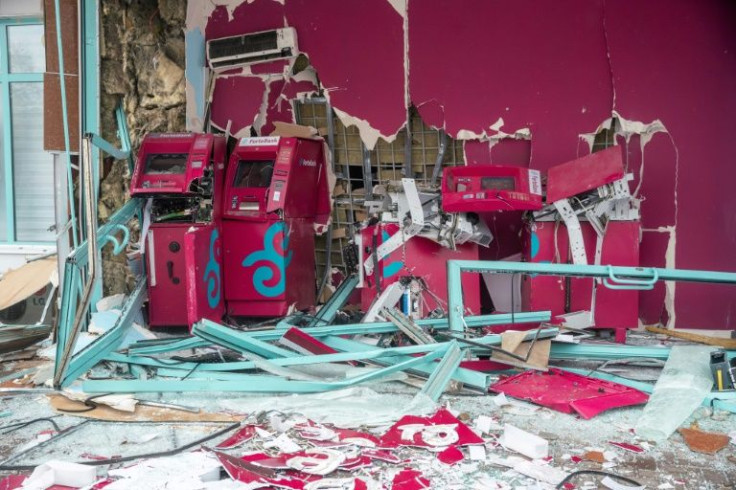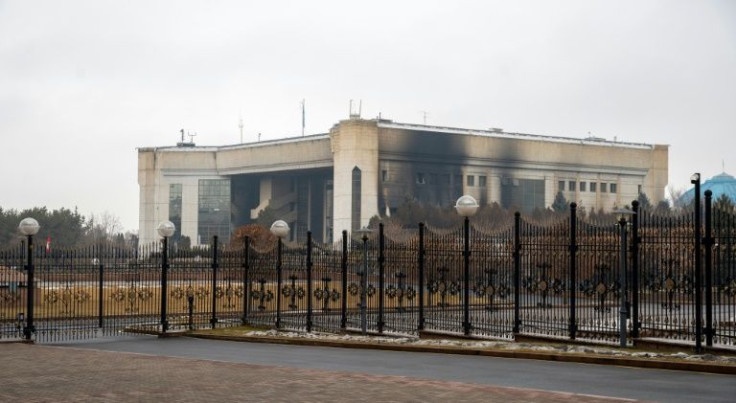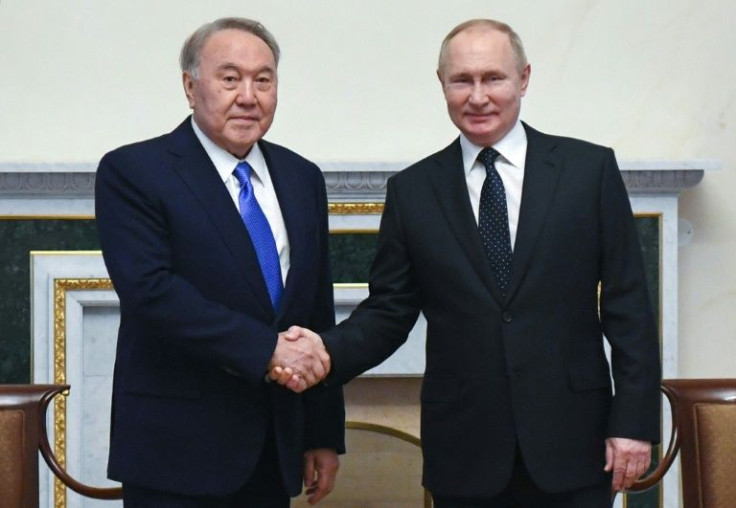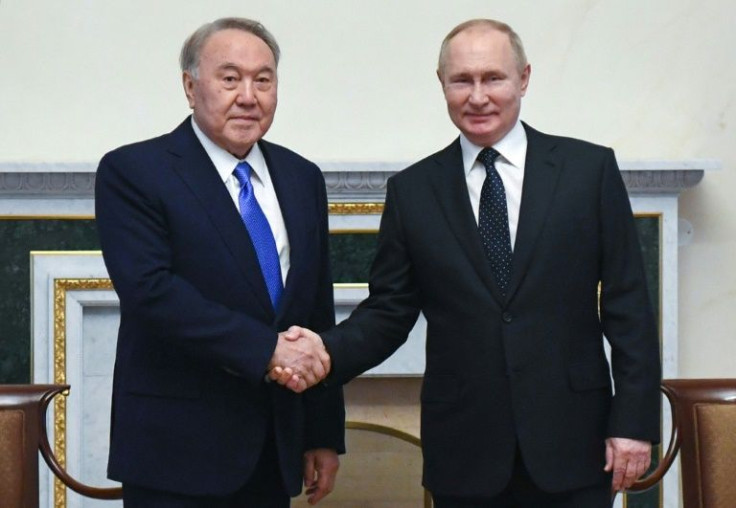Kazakhstan To Pass Constitutional Changes: Exit Polls
Kazakhstan was set to pass changes to its constitution through a referendum Sunday, exit polls showed, after deadly unrest ended founding leader Nursultan Nazarbayev's three-decade grip on Central Asia's richest country.
Three exit polls showed constitutional changes passing with more than 74 percent of voters in support, a government Telegram channel said, with official results expected Monday.
The January bloodshed -- which grew out of peaceful protests over a spike in car fuel prices -- left more than 230 people dead and prompted authorities to call in troops from a Russia-led security bloc.

The drive for a "New Kazakhstan" in the wake of the violence has come from the man that Nazarbayev hand-picked to replace him as president in 2019, Kassym-Jomart Tokayev.
Tokayev, 69, describes the snap referendum as a shift from "super-presidential" rule that will strengthen parliament.
But it is the absence of special privileges for 81-year-old Nazarbayev that is the most eye-catching change to the constitution.
Prior to January's crisis, Tokayev was widely seen as ruling in the shadow of Nazarbayev and his super-rich relatives.

Even after stepping down as president, Nazarbayev retained the constitutional title of "Elbasy", or "Leader of the Nation" -- a role that afforded him influence over policymaking regardless of his formal position.
The new constitution does away with that status.
Another amendment prevents relatives of the president from holding government positions -- a clear nod to the influence of Nazarbayev's family and in-laws, who lost powerful positions in the aftermath of the violence.
Three government-endorsed pollsters all indicated strong support for the changes after voting concluded on Sunday night, with the lowest result showing 74.8 percent in favour and the highest showing 79.4 percent in favour.

Kazakhstan's central electoral commission claimed a preliminary turnout of 68.4 percent for the vote.
Polling stations in the largest city Almaty saw a slow trickle of voters in cloudless, breezy summer conditions.

Ayan, an 18-year-old student voting for the first time, said he welcomed the former president's removal from the basic law.
"He has his place in our history textbooks, but all citizens should be equal in the constitution," he said, after casting his vote at his university, where a small group of activists protested for the release of political prisoners and against the vote.
In the capital Nur-Sultan, named for Nazarbayev, a 46-year-old businessman called Bolat told AFP that he did not intend to vote.
"It's a formality to cement the position of the current leadership. The result will be the same," he said.
Kazakhstan's New Year crisis remains poorly understood, with a days-long internet shutdown at the peak of the unrest helping to further obscure the events.
Protests stirred in the oil-producing west over a New Year fuel price hike, but it was Almaty -- 2,000 kilometres (1,200 miles) away -- that became the epicentre of armed clashes, looting and arson.
Nur-Sultan, which was called Astana prior to 2019, remained largely untouched.
Tokayev blamed the violence on "terrorists" seeking to seize power and issued a "shoot-to-kill" order to Kazakh troops.
But the arrest on treason charges of a Nazarbayev ally who served as national security chief at the time fuelled speculation that a leadership struggle was at the heart of the violence.
After stability was restored, Tokayev criticised Nazarbayev for allowing inequality to fester, while crediting his mentor's state-building achievements.
Both former and current presidents are allies of neighbouring Russia, and the arrival of a 2,000-plus detachment of peacekeepers from a Moscow-led security bloc bolstered Tokayev's control over the situation in January.
The Kremlin claimed the intervention requested by Tokayev did not extend to any political settlement, which was "the internal affair of Kazakhstan".
In an interview published Monday he said that his relatives should be "held accountable" if they committed crimes, but were entitled to a fair trial -- an apparent reference to nephew Kairat Satybaldy, a businessman presently detained on embezzlement charges.
© Copyright AFP 2024. All rights reserved.







